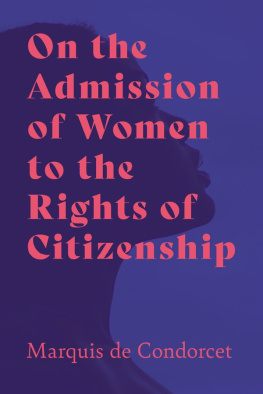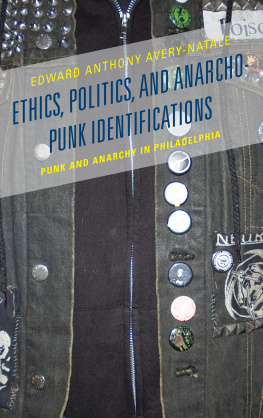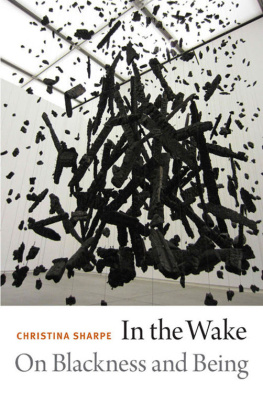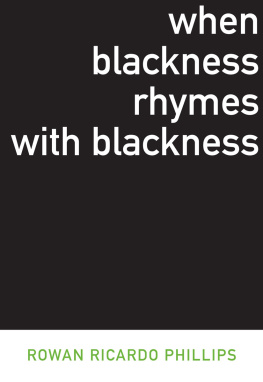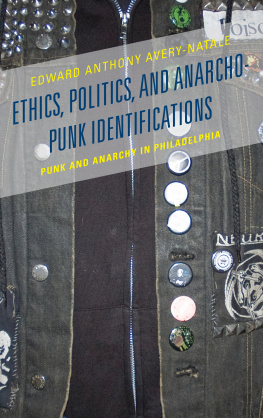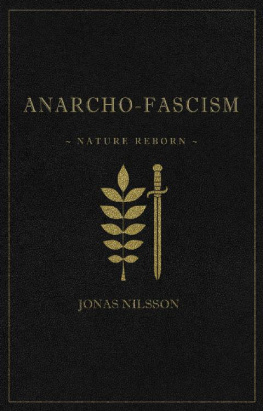Bey Marquis - Anarcho-Blackness
Here you can read online Bey Marquis - Anarcho-Blackness full text of the book (entire story) in english for free. Download pdf and epub, get meaning, cover and reviews about this ebook. year: 2020, publisher: AK Press, genre: Politics. Description of the work, (preface) as well as reviews are available. Best literature library LitArk.com created for fans of good reading and offers a wide selection of genres:
Romance novel
Science fiction
Adventure
Detective
Science
History
Home and family
Prose
Art
Politics
Computer
Non-fiction
Religion
Business
Children
Humor
Choose a favorite category and find really read worthwhile books. Enjoy immersion in the world of imagination, feel the emotions of the characters or learn something new for yourself, make an fascinating discovery.

- Book:Anarcho-Blackness
- Author:
- Publisher:AK Press
- Genre:
- Year:2020
- Rating:3 / 5
- Favourites:Add to favourites
- Your mark:
- 60
- 1
- 2
- 3
- 4
- 5
Anarcho-Blackness: summary, description and annotation
We offer to read an annotation, description, summary or preface (depends on what the author of the book "Anarcho-Blackness" wrote himself). If you haven't found the necessary information about the book — write in the comments, we will try to find it.
Anarcho-Blackness — read online for free the complete book (whole text) full work
Below is the text of the book, divided by pages. System saving the place of the last page read, allows you to conveniently read the book "Anarcho-Blackness" online for free, without having to search again every time where you left off. Put a bookmark, and you can go to the page where you finished reading at any time.
Font size:
Interval:
Bookmark:
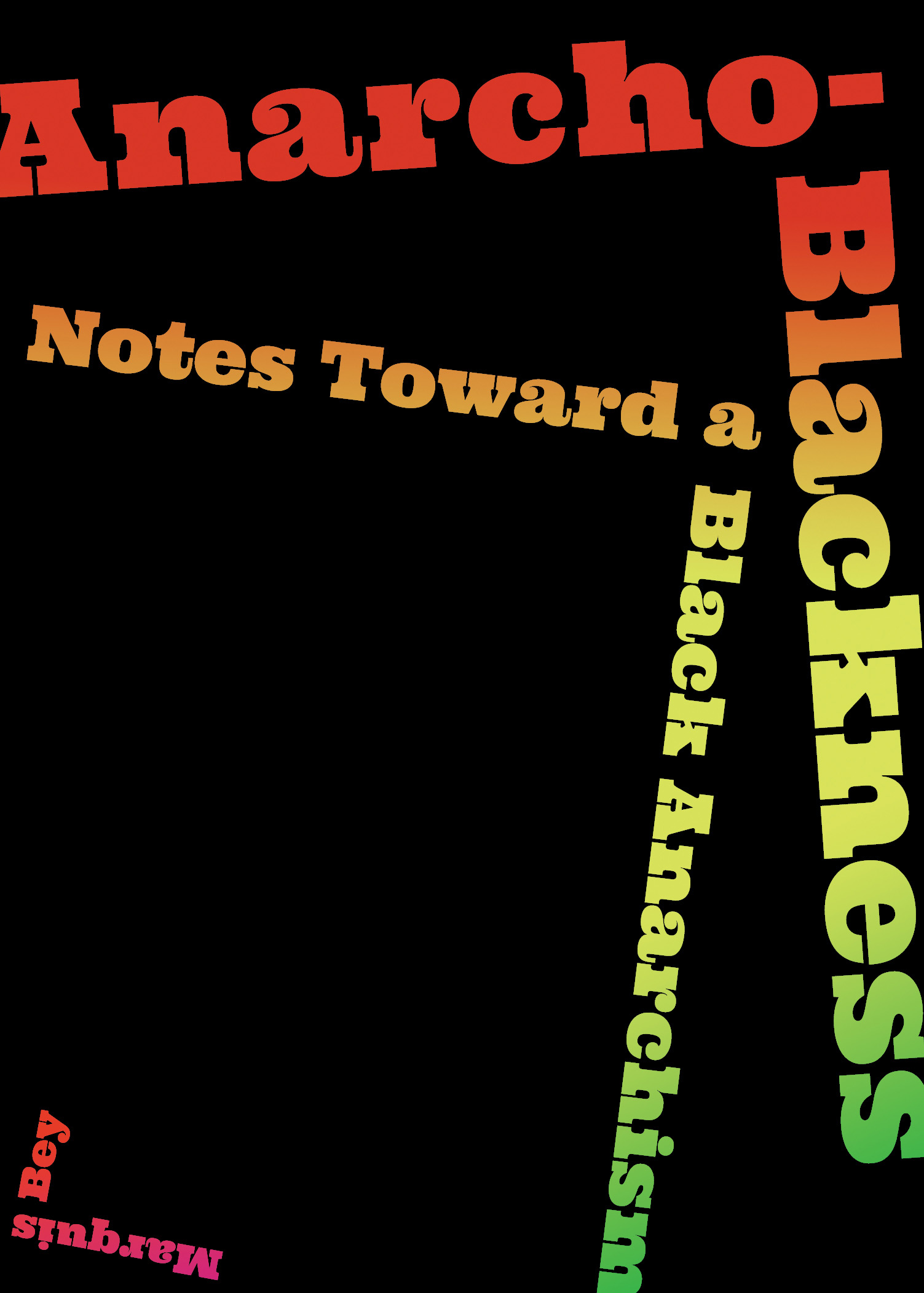
Anarcho-Blackness
Notes Toward a Black Anarchism
Marquis Bey
AK Press
Contents
Black Anarchic Notes
I myself am an anarchist, but of another type.
Mahatma Gandhi, Benares University Speech, February 4, 1916
This endeavor into what might be understood as Black anarchism, a Black anarchism that is indebted to and circulates endemically within Black queer and trans feminisms, is a brief attempt to crystallize but also depart from tenets found in established Black anarchism, anarcha-feminism, and classical anarchismthe likes of Pyotr Kropotkin, Pierre-Joseph Proudhon, Mikhail Bakunin, and the like. While my aim will be to articulate a theoretical praxis for Black anarchism through what I will deem an an archo-Blackness springing from but also supplementing (and even disagreeing with) self-described Black anarchists, in this meditationa pamphlet, of sortsI do not take as my sole purpose to demonstrate a fidelity to Black people who are anarchists. Nor, I must state, is my goal to recover Black people who demonstrated anarchic tendencies and induct them into the fold of anarchism. I want to in fact resist the penchant to absorb various thinkers into the fold of anarchism; I do not want to claim them necessarily as anarchists when they do not avow themselves anarchists. Rather, my intent is a reconfigurative project, to express what anarchism might be, what it might look like, when encountering a sustained engagement with Blackness in general, and Black queer and trans feminisms more spec ifically.
In this sense, I take as a propelling force that, Anarchism, like anything else, as Hannibal Abdul Shakur notes, finds a radical new meaning when it meets blackness. The anarchism of, say, Bakunin is no longer anarchism proper when it meets Blackness. To clarify, there are certainly threads that connect different iterations of anarchism, making them all, in some sense, anarchist (e.g., emphasis on mutual aid, direct participation, anti-authoritarianism, etc.). But to meet with Blackness entails that anarchism undergoes a shift in focus and tenor. Classical anarchism, for example, rested on an axiomatic commitment to the dismantling of the State and capitalism as a defining factor for anarchist sentiments, but this foundation often does not consider the racialization and gendering of either of them, nor how hierarchization bears a racialized and gendered texture. To be sure, this project will advance beyond mere finger-pointing of the racist and sexist habits of anarchists pastan argument that many Black anarchists and anarcha-feminists have made to a valid but, to be frank, boring and expected effect. As I will discuss momentarily, the dramatic shift entailed in this iteration of Black anarchism is, perhaps more accurately, an anarcho-Blackness in that it is not Black people practicing an anarchism that goes unchanged; it is anarchism as expressed through and necessarily corrupted by the radicality, the lawlessness, the mutinous primordiality of B lackness.
If indeed, as remarked upon by Dana M. Williams, The term Black anarchism implies an interaction between Black and anarchism, Anarcho-Blackness: Notes Toward a Black Anarchism dwells in the texture of that interaction. This text is an effort to mine what that interaction entails: What happens to Blackness when circulating with and through anarchism? What happens to anarchism when being acted on by and in Blackness? What is yielded in this interactionan additive sum, a multiplicative product, an exponential result? Neither anarchism nor Blackness can be what it once was (which is itself an unsettled open question) after colliding in a critical, generative intimacy with one another, so I attempt here in this text to illustrate a facet of that intimacy. That intimacy is anarcho-Blackness; it is a Black queer feminist anarchism that disorders the various mechanisms that hierarchize, circumscribe, and do violence to the moments that do life on the outskirts of order (those moments of, as it were, unfettered and ungoverned sociality), an anticolonial sensibility. Anarcho-Blackness, and Black anarchism more broadly, is an anarchism of another type, to purloin Gandhi. It is another type that recognizes its intimacy with anarchism as conventionally understood, but it revises anarchism, anarchizes anarchism, remixes and samples anarchism to produce something distinct but very much indebted.
Anarchism is to be rightly understood as a more radical theoretical praxis than Maoism, socialism, or nationalist revolution because, from the Black radical perspective of Kuwasi Balagoon, the goals of anarchy dont include replacing one ruling class with another, neither in the guise of a fairer boss or as a party. Indeed, it is the name for the radical world-making project that, unlike the aforementioned political ideologies, refuses the socialization process that makes exploitation and oppression possible and prevalent in the first place, Balagoon continues. Black anarchic notes, as the chapters herein, deemphasize representational politics, as if having Black people as ones oppressors makes oppression more bearablewe know that oppressors never have a problem finding Black leaders to condemn their blatant disregard fo r life.
When researching anarchism and Black peoples relationship to it for this book, there was a notable dearth of self-described Black anarchists. Perhaps the reason for this, I pondered, even though the history of Black radicality is a history of anarchic thought, is because Blackness necessarily alters anarchisms capacity. Perhaps what I am designating as anarcho-Blackness, as the operative modality for Black anarchism, is no mere incorporation of Black people into the folds of anarchismi.e. add and stir. I am thus designating Black anarchisms anarcho-Blackness as a Black feminist critique and taking up of anarchism, asserting that 1) the Black in front of anarchism is to be understood not as a mere marker of identity but as a political and capaciously politicized affixation. It designates more of a mode and posture of reading, engaging, and undermining the tenets upon which hegemonic sociality rest. 2) Inherent to (Black) feminist mobilizations is ground-disturbing, and thus to disturb groundseven its own groundsis a necessary component of the project at hand. Anarcho-Blackness thus designates the disturbing of anarchisms ground, which capacitates what anarchism can be and who it can liberate. And 3) processes of racialization and gendering must be at the forefront of any and all radical politics. More specifically, the radical work that queerness and gender nonnormativity do, as expressed in Black queer and trans feminisms, is anarchic par excellence in that the dismantling of racial and gender hierarchies too often overlooked or merely glossed in classical anarchism is a fundamental rebuking of authoritarian rule, hierarchies, determination from without, and i njustice.
The titular anarcho-Blackness of this volume moves toward an anarchic social life in that it is delinked from oppressive forms of governance and rule. This is why each of the chapters in this book are prefixed unthis volumes commitment to anarchism stretches to subjective, intersubjective, discursive, systemic, and historical realms via a fundamental commitment to being and becoming unraced, ungendered, unclassed, unruled, and unbound. These notes toward a Black anarchism argue that, oddly enough, it is not necessary to find all the Black people who are anarchists and the anarchists who are Black people and roll out their writings and thoughts as the definitive statement on what constitutes Black Anarchism proper. Rather, the reason why this volume is titled Anarcho-Blackness and not simply Black Anarchism (aside from the fact that the Black Rose Federations reader, Black Anarchism , already exists) is because affixation of Blackness is itself an anarchic extension and disruption of political ideologies like anarchism and Marxism and socialism. We may not need a clearly defined Black Anarchism because to anarchically push anarchism, as it were, is to introduce to it a Blacknessor more specifically, an anarcho-Blacknessthat radicalizes any and every political ideology that moves toward liberation and freedom. Whereas historians like Carl Levy have focused on the - ism of anarchism, anarchism as a defined social movement that arose in the late-nineteenth century with clear originators, I focus instead on the anarcho- , the prefixal thrust and spirit, as it were, of anarchic tendencies and modalities. Focus on the anarcho- is to focus on a world-making sensibility that I am interested in, not a particular political cadre of writing and movements. Anarcho- Blackness in apposition to (not rather than) Black anarchism does not dwell in delineating criteria for a discernible Black anarchism as a movement but concerns the variegated modalities, methodologies, habits, trends, thoughts, and imaginaries that might be given to anarchicwhich is to say unruled, non-coercive, coalitionalaffinities and textures for being wi th others.
Font size:
Interval:
Bookmark:
Similar books «Anarcho-Blackness»
Look at similar books to Anarcho-Blackness. We have selected literature similar in name and meaning in the hope of providing readers with more options to find new, interesting, not yet read works.
Discussion, reviews of the book Anarcho-Blackness and just readers' own opinions. Leave your comments, write what you think about the work, its meaning or the main characters. Specify what exactly you liked and what you didn't like, and why you think so.

